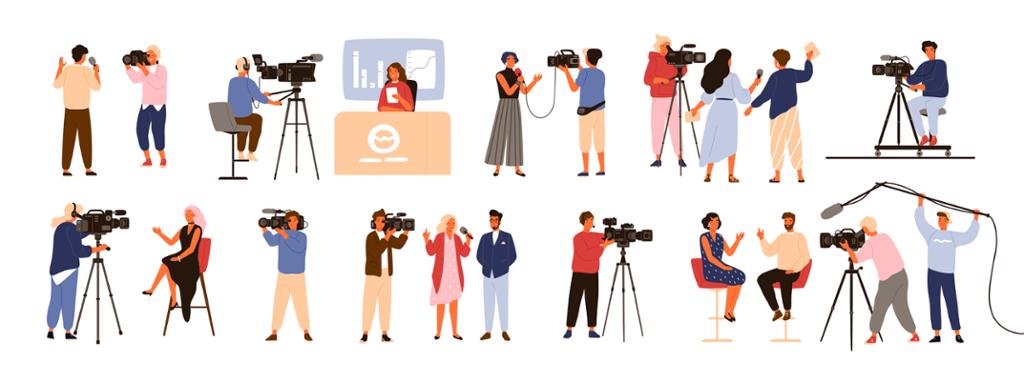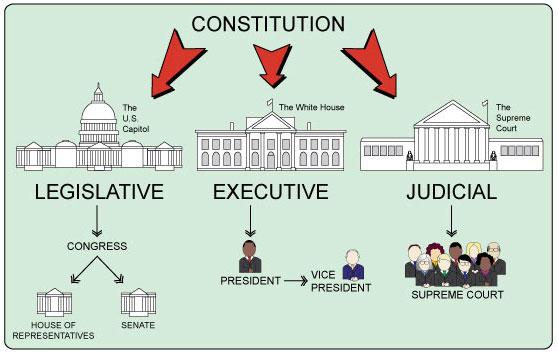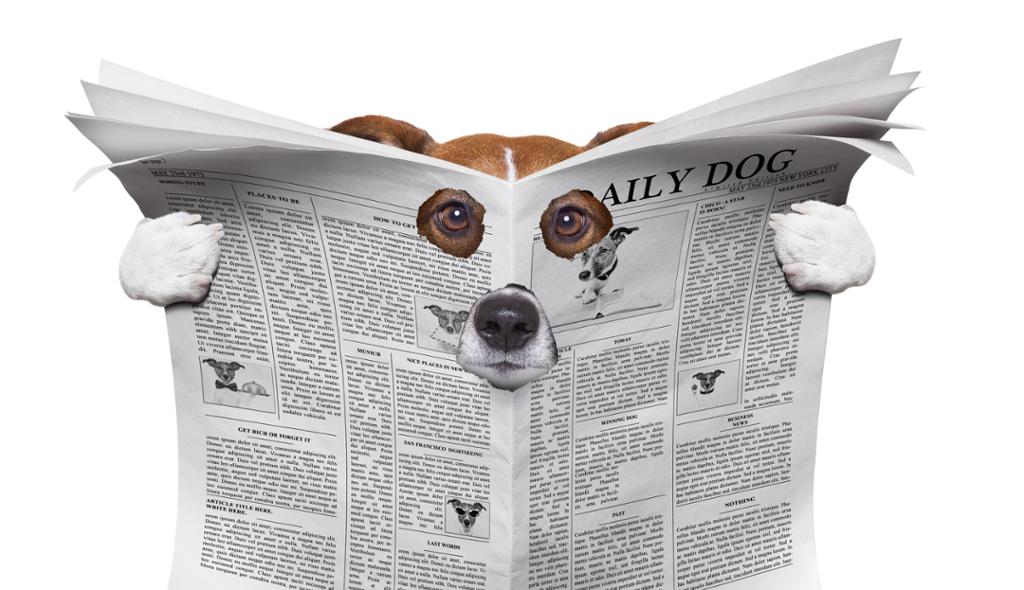The Media's Role in a Democracy

The media's role in a democracy
In a democracy power is divided between different branches of government. This is to prevent any one person, or group of people, from becoming so powerful that they can abuse their power. It was the 18th century French Enlightenment philosopher Charles Montesquieu who first suggested the system of separation of powers. He said: “all power corrupts, absolute power corrupts absolutely”. By this he meant that people who have a lot of power will abuse it, unless there are checks and safeguards to prevent this abuse. When Montesquieu wrote this, it was common for countries to have a sovereign king or emperor.
The United States was the first country to try separation of powers when they gained independence from Great Britain. They created three branches of government: A legislative branch which has the power to make laws and control the country’s budget; an executive branch, which does the day-to-day running of the country; and a judiciary branch, which ensures that the laws are upheld. This system became a model for democracies around the world, including Norway's democracy.

The media functions as the people's watchdog by reporting on the work that is done by each of the three branches of government. This is information that people need about how their country is run, how well the justice system works, what new laws are made and so on. The information people get from the media helps them decide how to vote in elections, if they are going to participate in protests, if they are going to write a blog or letter to the editor, or if they are happy with the way the country is run. A free media is important to ensure freedom of expression for the citizens. This makes the media an essential part of a functioning democracy.
The media also reports on issues that people care about and ensures that these issues are dealt with by the government. If a law is unfair the media can bring to light how it affects people. If regulations are too weak to prevent pollution the media can describe what is happening to the environment. If people do not want wind farms in their neighbourhood the media can explain why. If hospitals are understaffed and underfunded the media can interview doctors, nurses, and patients about how this affects people’s health. By covering important issues, the media sets the agenda for what the government must focus on.
If the media is to fulfill its role as the people's watchdog it is essential that it is free to report the facts. The media should be free from undue influence from the government, from political organisations, and from pressure groups. It should not change the stories that are reported on the basis of financial pressure. The media should be independent and objective.
In reality we see that many politicians find it hard to accept that the media is free to write whatever they want. The limits that politicians can place on the media is under constant debate. We also see that most of the media is either reliant on government funding or owned by large corporations. While the ideal is an entirely free press, the reality is that the media experiences pressure all the time.
Today faith in the media is very low. A survey carried out by the European Commission in 2019 showed that only 15% of respondents in the UK tended to trust the printed press. In the USA a 2019 Gallup poll showed that 15% of Republicans said they had a great deal of, or a fair amount of, faith in the media. The number was 69% for Democrats and 36% for Independents.
There are many reasons why faith in the media is so low. Click on the box below to find out more about this topic.

If people do not trust the media, they will miss important information about how their country is run. This means that when they participate in an election they may vote against their own interest. They may vote for people who stand for things they don’t agree with and didn’t want to vote for. They may miss important information that could make their lives better, for example during the Covid-19 pandemic when many people doubted advice given by the authorities.
When people do not trust the media it is easier for politicians or other officials who have been caught doing wrong to dismiss the reports as “fake news” or “media persecution”. They can avoid the consequences of wrongdoing by claiming the stories are fake, and they can avoid taking responsibility for what they have done for as long as people trust them more than they trust the media.
We also need the media to report stories from abroad accurately. When we hear about hunger in another part of the world, we may want to help. A conflict between two countries far away from us may become important if our country is asked to participate by sending weapons or soldiers, or being part of peace negotiations. If conditions are bad in a refugee camp, we may want to get involved to help the refugees receive more humane treatment, or pressure the authorities in our country to offer them a safe haven. If our hamburgers come from farms that are established by burning down rainforests, we can only make different choices if we know the facts. If products contain substances that cause allergies we can avoid those products if we have been informed. If our clothes and shoes are made using slave labour, or child labour, we can boycott the manufacturers until they change their business strategy, but only if we have access to that information. If a serious accident has happened, for example an explosion at a nuclear power plant, that can be significant for us in a number of ways, one being that nuclear pollution may drift across our border.
If the media does not report on stories accurately, people who need help may never get it. Conflict may develop into wars. Pollution may reach populated areas and cause harm. Products that are harmful for the environment or for users may be sold on the open market.
Today we have more access to news and information than ever before. Nevertheless, it is becoming increasingly difficult to separate opinion from fact, and propaganda from truth. However, there are still many media outlets whose stated goal is to be fair and objective, and who hire ethical and diligent journalists. By reading, watching, or listening to media that focuses on accuracy and objectivity, and by demanding that laws and guidelines are established to ensure quality journalism and stop lies and propaganda, we can ensure that the media continues to act as our watchdog.
Relatert innhold
Tasks related to the article The Media's Role in a Democracy